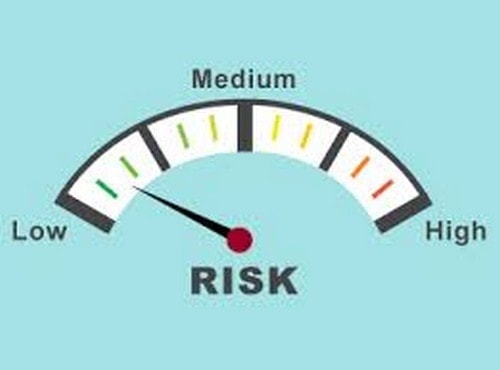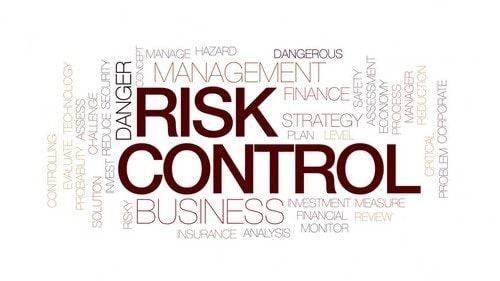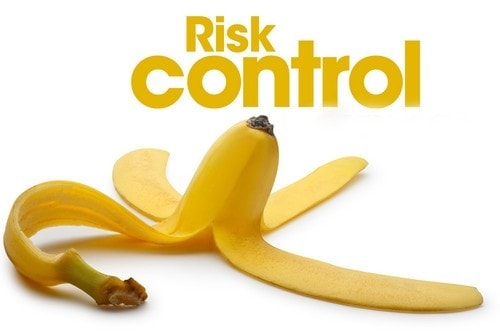Risk can be defined as the exposure to losses or injuries. A risk is caused by the occurrence of an unfavorable or undesirable event.
Risk control is a method by which a company identifies potential losses and devises strategies to reduce or terminate the losses. It is a technique for identifying potential risks in the operation of a firm, its technical and non-technical aspects. In order to identify the potential losses, they assess the company’s assets, loans, and investment which is called Risk Assessment. It’s an important procedure to determine the worth of an investment and how to reduce risks.
It can also be defined as planning, arranging and controlling of activities and resources in order to minimize the impact of uncertain events. It is the protection of assets, earnings, liabilities, and people of an enterprise with maximum efficiency at a minimum cost.
Table of Contents
What are the risks?
Risk is one of the major characteristics of our environment along with uncertainty. It is not only the center of insurance but also inseparable from our daily life. A risk is faced by everyone, in one form or the other. It’s often referred to as a possibility of loss or misfortune. There is always exposed to risk and sometimes it’s greater and sometimes it’s lesser but it is bound to occur and it happens in different forms or ways, which can be loss of life, property, health, theft, an accident.
They are classified on the basis of the type of consequence and problems involved. As per that there can be –
i) Pure risk – In this type, there is only a chance of loss and uncertainty is usually whether it will happen at all or when, where or how it will happen, often tagged as misfortunes that cause damage or hurt. This is a type of risk that can be protected by insurance.
ii) Speculative risk – In this case, there is a chance of loss or even a possibility of a gain or break even. If it stems out of a specific event then its called speculative risk. They cannot be protected by insurance and usually are covered by diversification.
iii) Fundamental risk – This type of risk affects the whole society and they are impersonal. It can either affect the society in general or a particular section or group of people rather than individuals and they usually beyond the control of individuals. E.g.- Earthquakes, typhoons, windstorm, etc
iv) Peculiar risks – These take place due to the decision and actions of a man, the causes and effects are completely personal. These peculiar or particular risks are insurable.
E.g. – Decision to build a house, own a car, are personal but with their peculiar risks.
What is Risk control?
When it comes to risk control the first step is definitely the assessment of assets of the company. The company/firm then chalks out the best methods to control the losses. They do accept the task but the aim is to minimize it as much as possible.
Since it’s very difficult to avoid it, loss prevention is the best solution. In case of a threat the loss prevention strategies help to accommodate the risk effectively and minimize the damage as much as possible. One of the strategies for risk control is Insurance, a third party is appointed to balance the losses under a contract.
They separate the assets strategically so that the risk is spread evenly and a threat can only affect one business location at a time because if all the assets are merged in the same place it can increase the percentage of the risk.
That’s not all risk control also involves duplication which is a backup plan, created through technology. A company cannot afford a system failure hindering its operations, therefore a backup server is always kept ready.
Apart from that the resources are managed efficiently and put in diverse lines of business, offering a variety of products and services, so a loss in one line cannot harm the entire firm and its bottom line.
Examples of Risk Control Actions
Regular inspections are done to reduce infrastructure risks. Equipment failure can be a huge risk to a firm, maintenance of equipment used in production is an example of risk control. The clients are provided due diligence for credit risks by carefully validating credit applications.
Another example of risk control is a validation of the system wherein human error is reduced in financial trading. Although, machines are also designed to shut down automatically when there are errors in order to reduce safety risks.
Policies are also implemented which involve wearing safety gear to reduce safety risks at work sites. There is always scope for change which is controlled by reviewing and approving changes to a project.
When accidents or injuries do occur despite precautions, organizations need a clear plan for response. This includes medical treatment protocols, but also legal readiness. Having contact with a reliable personal injury attorney ensures the company can handle liability claims properly, protect its legal standing, and respond swiftly to any incidents involving harm.
Overall the risk of any failure is managed by escalating issues and making the decisions required to clear them.
How does risk control help a firm?
Risk control is an important discipline for business in recent times. It helps in encouraging regulation and provides relief at the time of crisis. It helps predict all the risks that are most likely to happen to a firm and encourages preplanning to keep them in control and be aware of forthcoming issues; it basically helps to be one step ahead.
Identifying the impact of business and projects, focusing on ideas discussed and then dealing with points that are finalized with more relative solutions, is necessary. Risk control takes all views into account and helps to tackles issues easily.
Risks are treated by implementing already discussed plans and there is an internal agreement to put forth those actions so it helps to prevent conflict of interests. With all the planning and foreseeing that happens the risks that are to be handled are to the minimum which assists in speeding up data to change policies within the mapped business functions.
There is always increased awareness of the scheduled terms of risks and successful analysis and exercise of control over them. One can learn through the process and treat the risks better and improve performance gradually. It helps to save cost and time for the firm which results in better productivity.
New opportunities arise with unraveling issues and benefit in preparation for future endeavors along with the vast knowledge that is gained through experience coming from a greater insight of real balance sheets that supports the culture of risk management.
The firm even earns competitive advantages and there continued stable earnings.
What damages are caused by the process of risk control?
Risk control does take over the time needed for compensating on projects. It involves complex calculations in terms of management of risks. And the entire process is really difficult to predict. In case of improper control of risks, the pay of the firm is diverted to the payment of losses and recovery from the incurred losses. A lot of risk control depends on external entities and external data, so the information is not always under internal control.
Risk control takes a lot of time to implement, it’s a long process to gather information then devise strategies and mitigating the risks. It is quite futuristic and may or may not always turn as planned, it’s subjective. The potential threats need to managed effectively so that they disappear, which can reduce the level of risk and even increase the control over it.
Though all processes have their limitations and benefits, risk control becomes the major case when the firm has targeted results apart from potential threats, damages, and vulnerabilities.
What is the Importance of Risk Control?
Risk control measures are very crucial for the prevention of accident or injury to an organization. They provide a sort of safety net by identifying, controlling and reducing the risks present in an organization.
They provide a number of benefits to a firm, like identifying at-risk employees, and knowing what factors they are exposed to. Awareness of factors that cannot be eliminated and some factors that can be eliminated completely helps to know what to watch out for and gain knowledge of mitigation methods.
These processes are very important for the reassessment of risks time and again and check the efficiency of the methods applied to control them and decide whether they should be re-evaluated. It really does reduce the accidents and injuries caused by an organization.
These planning measures also help take care of legal obligations which require identification of risks and apply safety measures accordingly. There are a number of measures that work together in order to prevent a company from losses, elimination of risks is most preferred but it cannot work in all cases, thus there is risk substitutions and risk isolation which are implemented.
These work as a tool to keep the company in maximum profitable situations and always be covered up against the losses. Thus, risk control is an important procedure to keep the firm running healthily, attain the goals and profits that it aims for and make sure that losses incurred at kept at bay and do not cause a lot of collateral damage to the assets of an organization.
Liked this post? Check out the complete series on Risk Management



